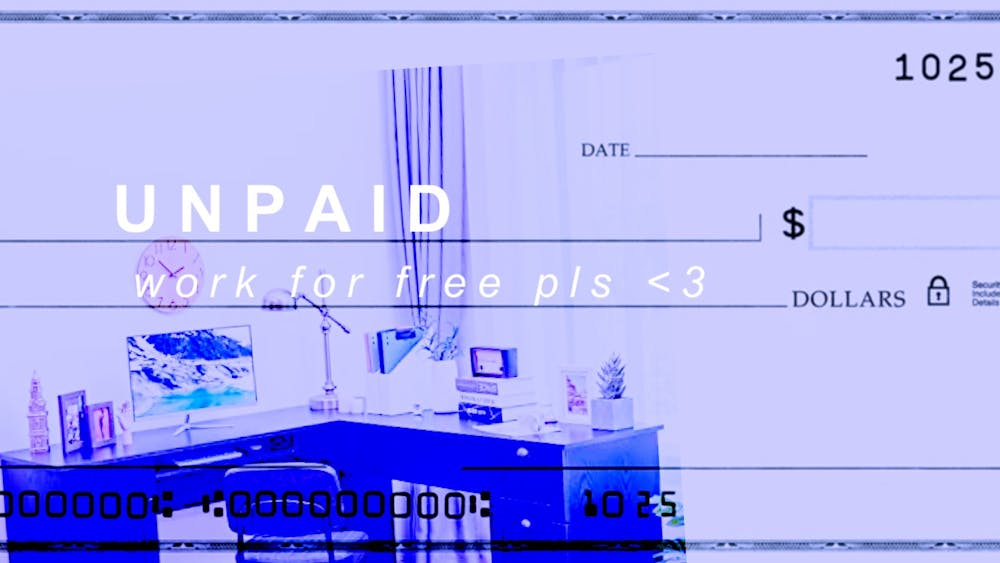No matter how shiny high–paying summer internships may look on our resumes or LinkedIn profiles, the reality of many of these jobs is less dazzling. But it isn't just the endless hours of Excel weighing us down. Unpaid internships continue to prevail in America, with over 40% of internships not being paid. This unsettling statistic is only another scheme of corporate America (again) reaffirming its capitalist agenda. This time, exploiting a pool of young workers—many of them college students—who may be stepping into the industry for the first time.
At Penn, paid or unpaid, summer internships are the general expectation. The expectation to have a “productive” summer—no matter how burnt out we are. Because of this suffocating pressure of pre–professionalism, our summer line–up feels limited. Instead of a much needed rest from an exhausting semester, we are instead always onto the next: constantly moving, running, hustling with no breaks. This has all become normalized as part of the Penn student experience. Therefore, unpaid internships are inextricably part of a “Penn summer expectation.” Penn advertises these realities with the Global Research Internship Program (GRIP), where many of these students substitute the “abroad experience” for their unpaid labor. Some of these interns may receive a stipend to pay for living expenses, but this again reinforces how this opportunity is not attainable or realistic for all students.
When internships are unpaid, the playing field becomes much smaller. Essentially, only those who have money and privilege can afford to give their time for the “experience.” Only those who are not pressured or bogged down by living expenses can manage paying rent in places like NYC with no source of income. Only those who have the privilege can afford life’s luxuries while boasting these unpaid internship titles. And the ones who so happen to attain such luxuries are the white, cis men who make up the majority of such internships. For low–income students, these unpaid internships are unfathomable possibilities. The abusive, hyper–exploitative wheels of capitalism spins once more, again perpetuating a cycle of inequity in America. When these opportunities are only accessible by wealthy white people, they only further America's wealth gap. Capitalism not only ostracizes and excludes, but also repackages itself to appear innocent to students who are desperate for a summer internship.
Because of this pressure from both Penn and corporate America, it is so easy to be manipulated by glittery internship titles. Despite our physical and emotional labor and time, we are told that we are given “an experience” of the real world and an “opportunity” to get to know a company’s culture and work environment. We are tied into these parasitic relationships in the hopes of attaining skills and benefits that can expand our knowledge base and build further connections. This bait machine orchestrated by capitalism continues to trick us to fetishize these unpaid internships—for the mere desire to have something listed on our LinkedIn profiles.
In America, these internships are almost an essential component for any student to attain a white–collar job. This is especially true for job vocations in journalism or politics, where these internships are key qualifications and networking opportunities to even be playing in these competitive fields.
But the struggle to survive under capitalism is a struggle for all waged and unwaged workers, the paid and unpaid interns. It is a struggle for Penn students as we navigate our own internalized burden of forced productivity. And it is a struggle as we question our own intentions of what we choose to do in our lives in order to forge meaning beyond money, prioritize healing over hustle, and to resist instead of relent.
It is true that Penn is not solely responsible for this competitive culture. It is also fueled and sustained by industries in order to trap students in a harmful cycle. A cycle that deludes, deceives, and does not compensate.

